Contact us

(*Required fields)
Please fill in ALL of the required information to submit this form.
It is that branch of dentistry which deals with an integrated management of oral health problems, by diagnosis, prevention and treatment of oral diseases. The goal is to bring back your natural smile, restoring a functional and esthetic state and prevent future oral health issues.
Indications for Restorative Procedures-
Why Restorative Procedures Are Important-
We at TnSS believe in preserving your natural teeth as much as possible. With the use of our high quality dental materials and high end technology, we are able to offer our patients, a comprehensive restorative dentistry facility.
After a thorough oral examination and radiographic assessments (if required), our dentists may provide you with one or more of the following treatment options-
Restoring teeth with tooth coloured composite fillings allows the tooth to be as close as possible to its original strength in the most conservative fashion. We use the most modern dental technology of using composites, which are resin bonded material, which bonds mechanically to the tooth and restores function as well as esthetics.


Crowns are a type of restoration covering the entire portion of the remaining natural tooth structure, which has been damaged, chipped or cracked. The crowns strengthen the damaged tooth and enhance its appearance, shape and alignment.
Missing or extracted tooth/teeth- The teeth on either side of the gap serve as is an artificial dental prosthesis, which spans the gap left by one or more anchors, called abutments, over which crowns are placed, supporting the crown that will cover the space of the missing tooth, the pontic. The number of abutments depends on the number and location of the missing teeth, size of abutment and condition of bone support of the abutments.
A crown or bridge requires precision aesthetics, which is achieved by our advanced and technologically sound In house Dental lab. We offer the following range of materials for crown and bridges-
A. PFM
B. Titanium
C. Zirconia
D. Emax
E. CAD CAM PFM
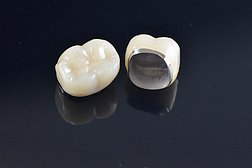
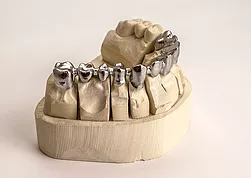
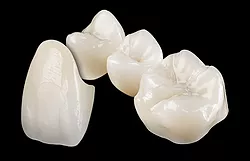
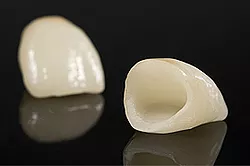
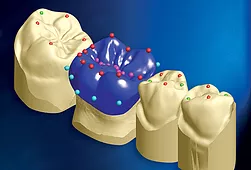
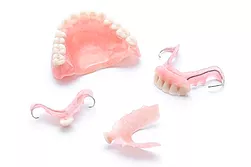
These are prosthetic replacement for missing teeth and surrounding tissues, supported on a framework. The framework could be made in acrylic resin or cobalt chrome alloy. Dentures help in restoring oral health and function. The types of dentures that we fabricate are-
Complete dentures– where all teeth are missing
Partial denture– where only a few teeth are missing
Immediate denture– Fabricated before extraction of teeth and placed immediately after the extraction
Implant supported fixed denture– Given over implants and fixed in place by screws
Implant supported Removable denture– Given over implants but can be removed
A denture needs daily care just like the natural dentition does. They need to be
Our Prosthodontists make sure that they deliver a denture that fits perfectly, looks natural and enables you to perform functions like eating, speaking etc., with utmost ease.
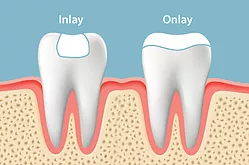
Inlays are used when a cavity is too large to retain a simple filling. It is fabricated in the lab, after minimum preparation of the tooth. It is made as a single, solid piece and then cemented in the cavity.
Onlays are the same as inlays except that it incorporates for replacement of tooth cusp. At TnSS, high quality ceramics are used, with proper shade matching with your natural teeth, for crafting inlays and onlays that blend beautifully with your natural tooth colour.